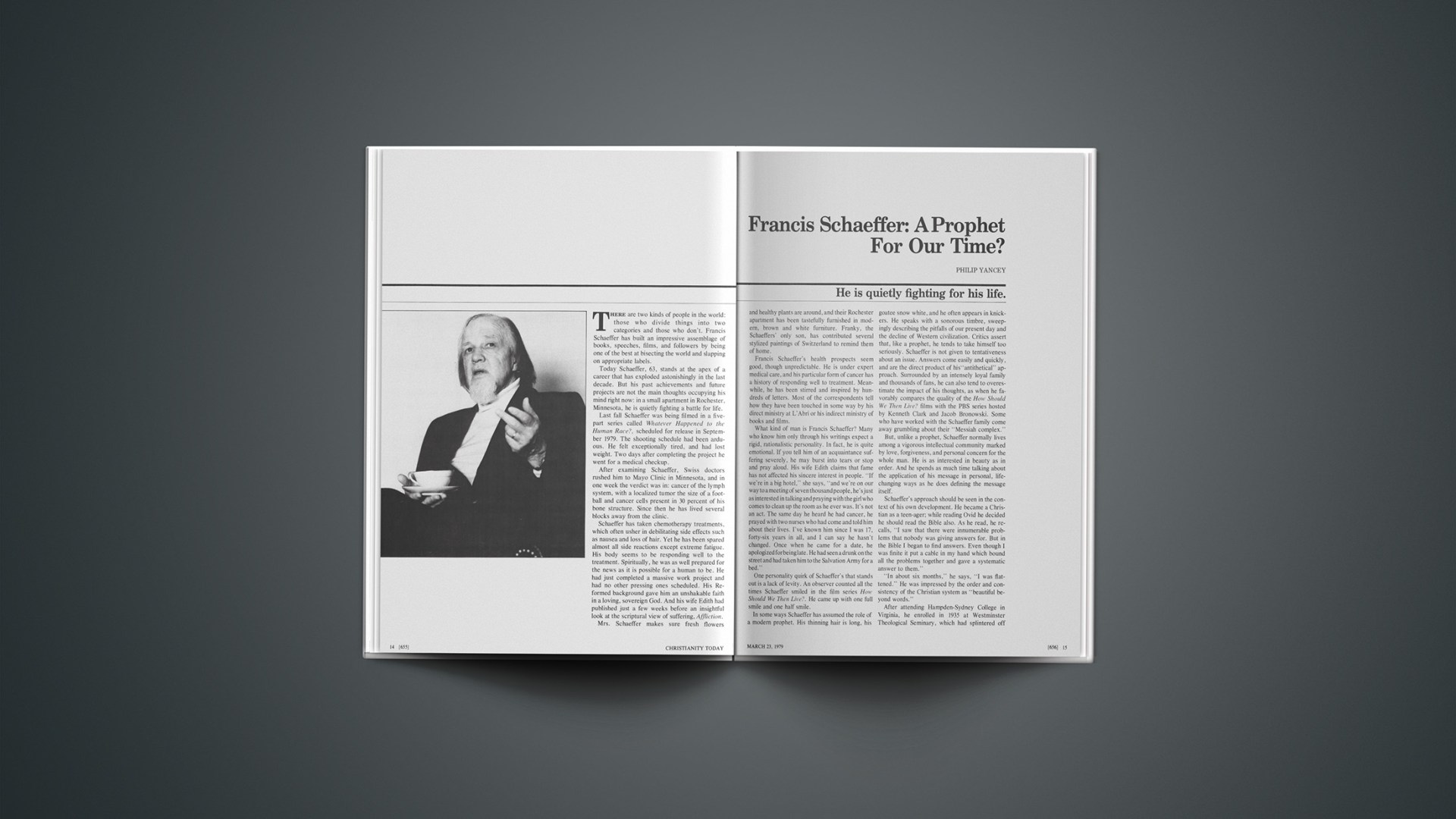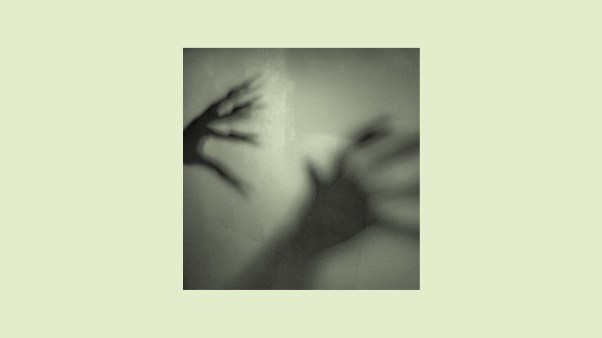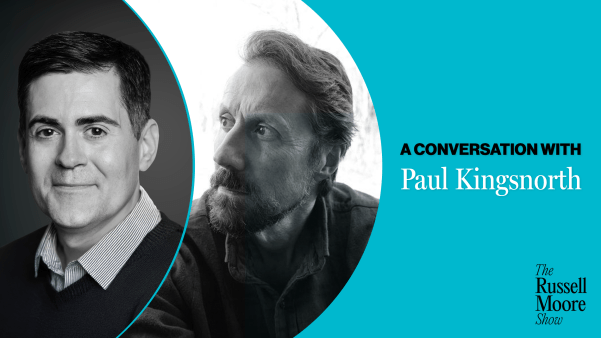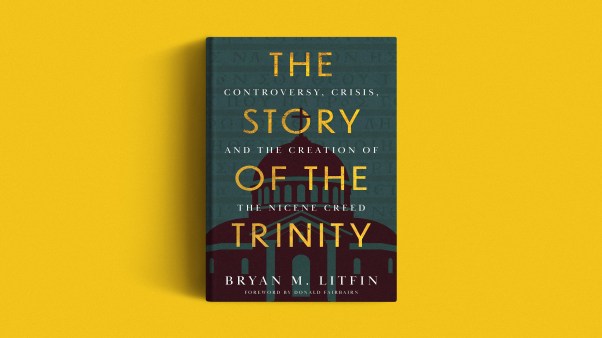He is quietly fighting for his life.
There are two kinds of people in the world: those who divide things into two categories and those who don’t. Francis Schaeffer has built an impressive assemblage of books, speeches, films, and followers by being one of the best at bisecting the world and slapping on appropriate labels.
Today Schaeffer, 63, stands at the apex of a career that has exploded astonishingly in the last decade. But his past achievements and future projects are not the main thoughts occupying his mind right now: in a small apartment in Rochester, Minnesota, he is quietly fighting a battle for life.
Last fall Schaeffer was being filmed in a five-part series called Whatever Happened to the Human Race?, scheduled for release in September 1979. The shooting schedule had been arduous. He felt exceptionally tired, and had lost weight. Two days after completing the project he went for a medical checkup.
After examining Schaeffer, Swiss doctors rushed him to Mayo Clinic in Minnesota, and in one week the verdict was in: cancer of the lymph system, with a localized tumor the size of a football and cancer cells present in 30 percent of his bone structure. Since then he has lived several blocks away from the clinic.
Schaeffer has taken chemotherapy treatments, which often usher in debilitating side effects such as nausea and loss of hair. Yet he has been spared almost all side reactions except extreme fatigue. His body seems to be responding well to the treatment. Spiritually, he was as well prepared for the news as it is possible for a human to be. He had just completed a massive work project and had no other pressing ones scheduled. His Reformed background gave him an unshakable faith in a loving, sovereign God. And his wife Edith had published just a few weeks before an insightful look at the scriptural view of suffering, Affliction. Mrs. Schaeffer makes sure fresh flowers and healthy plants are around, and their Rochester apartment has been tastefully furnished in modern, brown and white furniture. Franky, the Schaeffers’ only son, has contributed several stylized paintings of Switzerland to remind them of home.
Francis Schaeffer’s health prospects seem good, though unpredictable. He is under expert medical care, and his particular form of cancer has a history of responding well to treatment. Meanwhile, he has been stirred and inspired by hundreds of letters. Most of the correspondents tell how they have been touched in some way by his direct ministry at L’Abri or his indirect ministry of books and films.
What kind of man is Francis Schaeffer? Many who know him only through his writings expect a rigid, rationalistic personality. In fact, he is quite emotional. If you tell him of an acquaintance suffering severely, he may burst into tears or stop and pray aloud. His wife Edith claims that fame has not affected his sincere interest in people. “If we’re in a big hotel,” she says, “and we’re on our way to a meeting of seven thousand people, he’s just as interested in talking and praying with the girl who comes to clean up the room as he ever was. It’s not an act. The same day he heard he had cancer, he prayed with two nurses who had come and told him about their lives. I’ve known him since I was 17, forty-six years in all, and I can say he hasn’t changed. Once when he came for a date, he apologized for being late. He had seen a drunk on the street and had taken him to the Salvation Army for a bed.”
One personality quirk of Schaeffer’s that stands out is a lack of levity. An observer counted all the times Schaeffer smiled in the film series How Should We Then Live?. He came up with one full smile and one half smile.
In some ways Schaeffer has assumed the role of a modern prophet. His thinning hair is long, his goatee snow white, and he often appears in knickers. He speaks with a sonorous timbre, sweepingly describing the pitfalls of our present day and the decline of Western civilization. Critics assert that, like a prophet, he tends to take himself too seriously. Schaeffer is not given to tentativeness about an issue. Answers come easily and quickly, and are the direct product of his “antithetical” approach. Surrounded by an intensely loyal family and thousands of fans, he can also tend to overestimate the impact of his thoughts, as when he favorably compares the quality of the How Should We Then Live? films with the PBS series hosted by Kenneth Clark and Jacob Bronowski. Some who have worked with the Schaeffer family come away grumbling about their “Messiah complex.”
But, unlike a prophet, Schaeffer normally lives among a vigorous intellectual community marked by love, forgiveness, and personal concern for the whole man. He is as interested in beauty as in order. And he spends as much time talking about the application of his message in personal, life-changing ways as he does defining the message itself.
Schaeffer’s approach should be seen in the context of his own development. He became a Christian as a teen-ager; while reading Ovid he decided he should read the Bible also. As he read, he recalls, “I saw that there were innumerable problems that nobody was giving answers for. But in the Bible I began to find answers. Even though I was finite it put a cable in my hand which bound all the problems together and gave a systematic answer to them.”
“In about six months,” he says, “I was flattened.” He was impressed by the order and consistency of the Christian system as “beautiful beyond words.”
After attending Hampden-Sydney College in Virginia, he enrolled in 1935 at Westminster Theological Seminary, which had splintered off from Princeton Theological Seminary in 1929, under the leadership of J. Gresham Machen in the Fundamentalist-Modernist controversy. A year after Schaeffer entered the seminary, Machen was suspended by his denomination for setting up an independent mission board, and he formed the Orthodox Presbyterian Church.
Carl McIntire and some others subsequently withdrew from the new denomination, forming the Bible Presbyterian Church and Faith Theological Seminary. Francis Schaeffer followed the McIntire forces, finishing up at Faith.
Later, of course, McIntire repudiated the direction Schaeffer took with L’Abri. It is important to note that Schaeffer’s early training took place amid controversy. Learned men were defining terms, drawing battle lines, splitting doctrinal hairs. Schaeffer survived it all, somehow learning how to listen compassionately to different viewpoints, and emphasizing love and unity in the church.
For ten years Schaeffer was pastor of a church in St. Louis. Then, in 1947, a survey trip to thirteen European countries changed his life. He came away stimulated by the intellectual climate, but deeply concerned about the spiritual state of Europe. Though some countries were experiencing a postwar resurgence in religious interest, Schaeffer concluded that the neo-orthodox roots of their message would doom the long-term impact of the renewal.
For the next five years, Schaeffer was an itinerant evangelist across the Continent and in Scandinavia. He lectured on church history tracing Christian origins back to the first church in Acts and through the Reformation. He especially attacked the liberal trends personified by Karl Barth whose thoughts he labeled in a 1951 pamphlet as “insanity.” Besides lecturing, he and Edith helped churches organize children’s work.
L’Abri grew out of the Schaeffers’ ministry in the Swiss town of Champery, where they summered. He held services in an unused chapel of the mostly Catholic town. Some girls at a cosmopolitan finishing school began to attend the church, then to frequent the Schaeffers’ house and, as he recalls, “I was amazed in those discussions to find that I could answer those girls’ questions in a way that a lot of them actually became interested.”
In 1955 Schaeffer formed L’Abri (French for “shelter”) as an independent “faith” mission. U.S. response was mixed: “You mean you’re going to open your home to dropout sons and daughters of rich parents, without charging? What will you do all day? What is your ministry?” Edith’s book L’Abri chronicles the turmoil of those first few years. Their son Franky contracted polio, a daughter fought rheumatic fever, and the whole family had a bout with food poisoning. Worse, their entire village was almost swept away by avalanches, and at one point the Schaeffers were surreptitiously ordered to leave Switzerland for “having a religious influence on the town.” Financial needs were also pressing. They had begun L’Abri with a vow that they would never directly solicit funds or students—all must come because of the Lord’s leading.
Word soon got out, among European students and American visitors, that “There’s a man up there in the mountains who can answer your questions.” The trickle of guests began.
Today the Swiss branch of L’Abri services some 110 people at a time. In addition, many people rent chalets and share in L’Abri activities. Smaller branches exist in France, England, and Holland, and a new one will open in Massachusetts this year.
While L’Abri can affect only a few score people at a time, through books and films Francis Schaeffer’s thoughts have spread throughout the world so that today he is hailed as one of evangelicalism’s leading spokesmen. “Missionary to the intellectuals,” Time called him. And Eternity said he had “more influence with today’s youth—from members of the dropout world to the disillusioned heirs of evangelicalism—than any other man.”
Schaeffer’s thirteen books and seven booklets have sold well over two million copies, not to mention his wife’s books and those of other L’Abri staff members. His first three works (Escape From Reason, The God Who Is There and He Is There and He Is Not Silent) are packaged together as a trilogy, and InterVarsity Press even markets a booklet called “Introduction to Francis Schaeffer” in which he explains how all the various books fit together. The books tend to be repetitious, and didactic, but they cover a broad range of topics, and all are readable by the educated consumer.
His first book came about after Schaeffer had been touring U.S. colleges and universities delivering a lecture called “Speaking Historic Christianity Into the Twentieth Century.” He got an enthusiastic response at Wheaton College in 1968, in the midst of that era’s student turmoil. Students were delighted with a man who believed orthodox doctrine and yet tried to interpret the “worldly” thought and art which surrounded them. Schaeffer then allowed Jim Sire to edit his tapes into the first few books.
The only books Schaeffer has written intentionally (as opposed to someone adapting his spoken material) are the two connected with his film series, How Should We Then Live? and Whatever Happened to the Human Race? (due out in June). How Should We Then Live? grew out of a challenge from Billy Zeoli of Gospel Films, who had seen Kenneth Clark’s Civilization and was convinced an evangelical reply was needed—either from Schaeffer or from Malcolm Muggeridge. Whatever Happened to the Human Race? was the brainchild of Franky Schaeffer, now 26, who is producing and directing it. It will deal specifically with the three topics of abortion, euthanasia, and infanticide, and will feature Schaeffer and Dr. C. Everett Koop of Philadelphia.
How Should We Then Live? has set an all-time record in number of bookings for its distributor, Gospel Films, and the $12.95 book (published by Fleming Revell) after coasting atop the religious bestsellers list for months, still sells 1,500 copies a month.
Reflecting on his life, Schaeffer seems to take most delight in pointing out the things he pioneered, such as his early fight against racism and his call for Christians to use their wealth compassionately. L’Abri spearheaded a model of community long before radical Christians took up the cause. There was considerable sacrifice involved in the early days of L’Abri, with the Schaeffer’s wedding presents wiped out, sheets torn, holes burned in the rug, kids vomiting in the rooms.
As for his contributions to thought, Schaeffer speaks most proudly of two messages. First, his dual stress of orthodoxy and the need for love and community. He says now he wishes he had stressed more strongly specific applications, such as arguments, against racism and for distributed wealth. Second, his encouragement of Christians to operate as whole persons within all of culture, giving them a framework for interpreting books, painting, music, and movies.
Schaeffer’s system of thought is grounded in the “antithesis” which he stresses so often: that if a statement is true, the opposite of that statement cannot be true. In personal contacts Schaeffer attempts to furrow backwards until a person admits what his presuppositions are. He will then follow them logically until the person sees the contradiction in his conclusions. To Schaeffer “no non-Christian can be consistent with the logic of his presuppositions.”
In other words, start with a presupposition that the world came about by chance. Schaeffer would lead you, intellectually, until you concluded inevitably that man cannot have meaning and that none of his actions made any difference in the world. There is no “outside force” to be accountable to. To Schaeffer, a person who starts with presuppositions that exclude God must become “an atheist in religion, an irrationalist in philosophy and completely immoral in the wider sense.” Schaeffer is at his best in finding contemporary examples of people who admit those presuppositions and conclusions but fail to live consistently with them. For example, Jean Paul Sartre asserted there is no basis for ethical judgments of right and wrong, yet he broke his own principles by denouncing French treatment of Algeria on moral grounds.
“Pre-evangelism” is the term Schaeffer uses to describe this process of bringing a person to see the logical result of his own presuppositions. Thereafter, Schaeffer presents the Christian alternative, and shows how the Christian conception of a world created by an intelligent designer makes more sense.
A Ph.D. candidate at Yale, Thomas V. Morris, analyzed the philosophical roots of Schaeffer’s thoughts in a Moody Press book, Francis Schaeffer’s Apologetics: A Critique, concluding that Schaeffer’s approach is really a jazzed-up version of the argument from design. Morris is sympathetic to most of Schaeffer’s basic premises, but dislikes his generalizing, sweeping style.
Schaeffer sees a huge rupture in the history of thought cracking open about the time of Hegel, who rejected the antithesis mode of thinking in favor of synthesis. Sören Kierkegaard took Hegel’s synthesis approach and applied it to the realm of theology, thus becoming, in Schaeffer’s words, “the father of all modern existential thought, both secular and theological.” The natural world of the visible and created began to swallow up the unseen world. We can only be sure, say the moderns, of the seen world. The unseen world is not known through reason: it is known through irrational “leaps of faith.”
Schaeffer does not like leaps of faith, at least in doctrine. He believes doctrine must derive from a carefully reasoned, step-by-step approach based on the verbal revelation God has given in the Bible. Ironically, however, Schaeffer practices great faith in his own spiritual life. Anyone who reads the story of L’Abri knows it took immense faith to continue despite the adversities that confronted the community.
Unlike some apologists, Schaeffer does not restrict his inquiry to the field of knowledge. He is a preacher also, and devotes equal time to the practical application of how the church can and should reveal the holiness and love of God. “I’m sick and tired of dusty apologetics,” he says. “To my mind apologetics is not a safe system to live in. Apologetics should lead people to Christ and to a greater comprehension of the Lordship of Christ in the whole spectrum of life.”
L’Abri, fortunately for Schaeffer, is a commendable example of the outworking of practical apologetics (although recent visitors there say the unity of the place is sorely suffering from Schaeffer’s absence). Even critics of Schaeffer’s philosophical approach admit this. Professor Jack Rogers, after analyzing Schaeffer in a two-part article in The Reformed Journal concluded, “In reading their (Schaeffers’) books I have found the inexactitude of the arguments exasperating, but the description of life at L’Abri exhilarating.”
One puzzling aspect of Schaeffer’s work is the downplaying of the nonrational (not irrational) aspects of the gospel. Schaeffer seems to rely on the power of reasoning, as if the only way a person could come to Christ is by arguing himself into the Kingdom. After all, many of the gospel’s most salient features—unearned grace and unmerited sacrifice, for example—would not be arrived at on the basis of logic from natural revelation.
Where in Schaeffer’s system is the sehnsucht, the sense of longing that provided the motif for C.S. Lewis’s conversion? One wonders how Schaeffer would respond to a person who came to an emotional (not propositional) awareness of good and evil through reading Tolkien or Tolstoy; would his apprehension of a “first-order, existential” experience be rejected because of its weak epistemology? Or could it too lead him toward Christ? C.S. Lewis, certainly a rational thinker, startled the intellectual world with his premise that the Romantic movement (not Hegel’s synthesis or the Renaissance) caused the most profound shift in recent history, yet Schaeffer seems to sidestep that area entirely.
Schaeffer’s main weaknesses, however, derive from the dual role he has accepted: that of evangelist and apologist. He believes so sincerely in the force of what he’s presenting that, to him, the arguments compel agreement. He uses phrases describing the Christian answer as being a “logically necessary conclusion” rather than a “probable conclusion” or “plausible conclusion.” And, searching for illustrations from modern culture to demonstrate his points, he passes over hundreds of examples that wouldn’t demonstrate the point. He is a dramatist. He speaks in italics. He makes such statements as, “Picture the line between reason and non-reason as a solid concrete wall with barbed wire in the middle charged with 10,000 volts of electricity. Then you can begin to understand how there can be no interchange between the lower story with reason which leads to despair and the upper story of hope without reason.”
Naturally, some Christian philosophers and theologians fidget a little when they realize Schaeffer has just placed some of their favorite mentors, such as Barth and Kierkegaard, on the wrong side of the concrete wall. As Jack Rogers commented, “Schaeffer lumps Rousseau, Kant, Hegel and Kierkegaard together. His characterizations of their thought are almost unrecognizable with reference to either their own works or standard textbook treatments of them.… One is soon tempted to defend a philosopher simply because he has been unfairly caricatured by Schaeffer, even when one is in reality as critical of him as Schaeffer is—but for quite different reasons.”
Schaeffer’s confident, panoramic assertions have gained him both notability and notoriety. He has had an incredible impact on young evangelicals who are now likely to confront their teachers with such befuddling questions as: “Let’s see, did that composer write before or after the line of despair?”
Yet in many ways Schaeffer has stayed consistent with his presuppositions about what his role should be. Sometimes he delights in calling himself an “old-fashioned evangelist,” and one gets the distinct impression that one child who accepts Christ in his little chapel in Switzerland gives him more pleasure than all the brilliant students whose theoretical discussions keep him up so late.
Sometimes his prophet’s mantle causes him to stumble, as in the late sixties when he predicted that the New Left in America would grow “stronger and more violent and more disruptive” and “society itself will move toward chaos.” To many sophisticated non-Christians, who are not atheistic existentialists, and who live fulfilled, hopeful lives, oblivious to the line of despair, this strange man with the aura of the Alps about him must appear to be a relic. They go on their way, still benefiting from the moraine of Christian civilization, still reading Dostoyevsky and listening to Mozart masses played by the Chicago Symphony, still celebrating familial love during holidays. Yet it is precisely those people who make Francis Schaeffer so intense, so pessimistic, and non-smiling. They are living, he believes, an absolute lie to their presuppositions. They are teetering on the brink of cosmic choices, and they refuse to face the evidence. He has given his life to try to convince them.
G. Douglas Young is founder and president of the Institute of Holy Land Studies in Jerusalem. He has lived there since 1963.










